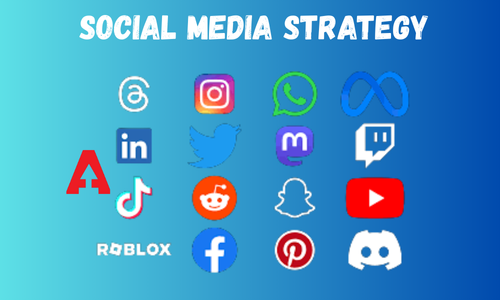Discover how artificial intelligence, short videos, and interactive content are reshaping the future of digital marketing while keeping the human touch alive.
Digital marketing trends evolve quickly, and staying up to date is essential to stand out. In 2026, strategies will focus on personalization, automation, and the intelligent use of artificial intelligence (AI) — all while maintaining a genuine human connection with the customer.
From a business management perspective, brands that embrace new technologies and creative approaches will achieve better positioning. Likewise, business ideas that incorporate the latest marketing trends will be better prepared to anticipate changes in digital consumption habits.
In this sense, expect to see formats like short videos and even voice-only marketing. The future of this field will be defined by immediacy and creativity.
- Short-Form Content
One of the most evident digital marketing trends is the dominance of short-form content. You can see it across many platforms — especially TikTok and Instagram through Reels. Even YouTube has adapted this format by introducing YouTube Shorts.
This type of content is highly visual and easy to understand for all users. Many micro-videos and informational clips help humanize brands and build closer relationships with audiences. It’s especially recommended for younger demographics.
- Artificial Intelligence (AI)
AI is here to stay and has become essential for content creation. It allows marketers to:
- Generate creative ideas
- Segment audiences
- Automate tasks
AI enhances creativity while enabling content tailored to each audience segment. It doesn’t replace humans — it improves their work. By 2026, most brands will have integrated AI into their marketing strategies and workflows.
- 360º Campaigns
360º campaigns, which integrate multiple channels, are a growing trend. Their goal is to provide a consistent experience across all touchpoints, including:
- Social media
- Email marketing
- Websites
- Digital advertising
Such campaigns help maintain a uniform message and reinforce brand identity. They also strengthen collaboration among marketing, sales, and customer service teams.
- Micro-Influencers
Another key digital marketing trend is the rise of micro-influencers — smaller communities that can be highly effective partners in 2026. They offer authenticity and build trust with their audiences, making them valuable allies for brands.
Collaborating with micro-influencers who share a company’s values and mission can significantly improve brand credibility and engagement.
- Smarketing
Smarketing — the integration of sales and marketing teams — will continue to gain traction. This collaboration helps align goals, optimize resources, and improve lead conversion.
In an environment where consumers expect fast and consistent responses, companies that adopt smarketing strategies will deliver a smoother experience from first contact to final purchase.
- Personalized Content
Personalization has become a defining feature of marketing in 2026. Users now expect messages and offers that align closely with their interests, browsing history, and online behavior.
To achieve this, brands must analyze data and use automation tools to create unique, customized campaigns. This approach not only boosts engagement but also strengthens long-term customer relationships.
- Interactive Content
Interactive content is essential for boosting user engagement. It transforms audiences from passive viewers into active participants while also helping brands gather valuable insights about their customers.
Examples include:
- Polls
- Quizzes
- Games
- Simulators
- Voice Assistant Marketing
Finally, voice assistant marketing is emerging as a powerful trend. In recent years, virtual assistants like Alexa and Siri have seen a surge in usage, transforming how people search for information.
Brands must adapt their content for voice search, using natural language and providing direct, conversational answers. As a result, voice search SEO optimization will be a major focus for 2026.








